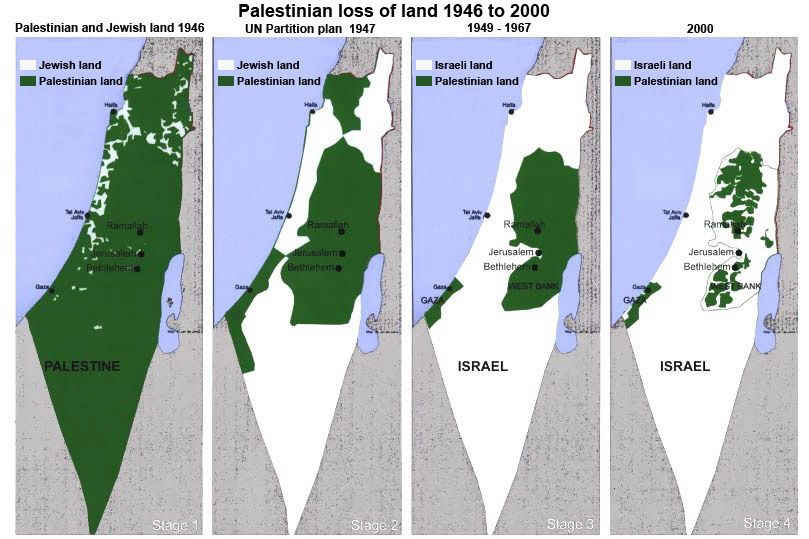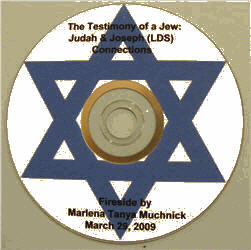
To learn more, check out www.mideastweb.org/nutshell.htm, www.markhumprys.com/israel.conflict.html
The Six-Day War - 1967
A brief summary of the campaign: Following the short Suez War of 1956 between Israel and Egypt resolved nothing, and only set the stage for a future war between the Jewish nation and its Arab neighbors. In the 1956 war, Israeli forces fairly easily defeated the Egypian military and occupied the Sinai Peninsula and Gaza Strip, only to give it back to Egyptian control in the ceace-fire agreement. In the years after 1956, Egypt and the other Arab powers, Syria and Iraq, more closely became aligned with the Soviet Union, which supplied them with large amounts of modern military weaponry and Soviet advisors and trainers. Likewise, Israel moved closer to the United States in those years, to the point where the Arab- Israeli Conflict became a part of the larger and very dangerous Cold War between the U.S. and its allies on one side, and the Soviets and their allies and satellites on the other side.
As the underlying tensions between the Arab nations and Israel remained unchanged since the First Arab-Israeli War of 1948-1949, the outbreak of a third major war was expected. The introduction of the American-Soviet competition and arms sales in the region only accelerated the likelihood of a Middle Eastern war evolving into a Cold War confrontation. the immediate cause of war in 1967 came out of Egypt's decision to expel United Nations (UN) troops from the Sinai peninsula and blockade Israel's port of Eilat. The UN forces were intended to form a buffer between the border separating Israel and Egypt, and their expulsion led the Israeli government to fear an imminent attack by Egypt.
It should be pointed out that ever since the start of the first war in 1948, Israel had existed in a continued legal state of war with all of its Arab neighbors, including Iraq and Saudi Arabia. The first two wars were ended with cease-fires, but with no lasting peace, not unlike the concusion of the 1950-1953 Korean War, in which an armistice ended the fighting, but did not bring a legal end to war. Thus, when the military forces of Egypt, Syria, and Jordan, as well as Iraq, began to mobilize and make obvious preparations for war, Israel felt forced to act in self-defence.
In May 1967, Egypt and Syria took a number of steps which led Israel to believe that an Arab attack was imminent. On May 16, Nasser ordered a withdrawal of the United Nations Emergency Forces (UNEF) stationed on the Egyptian-Israeli border, thus removing the international buffer between Egypt and Israel which had existed since 1957. On May 22, Egypt announced a blockade of all goods bound to and from Israel through the Straits of Tiran. Israel had held since 1957 that another Egyptian blockade of the Tiran Straits would justify Israeli military action to maintain free access to the port of Eilat. Syria increased border clashes with Israel along the Golan Heights and mobilized its troops.
The U.S. feared a major Arab-Israeli and superpower confrontation and asked Israel to delay military action pending a diplomatic resolution of the crisis. On May 23, U.S. President Lyndon Johnson publicly reaffirmed that the Gulf of Aqaba was an international waterway and declared that a blockade of Israeli shipping was illegal. In accordance with U.S. wishes, the Israeli cabinet voted five days later to withhold military action.
The U.S., however, gained little support in the international community for its idea of a maritime force that would compel Egypt to open the waterway and it abandoned its diplomatic efforts in this regard. On May 30, President Nasser and King Hussein signed a mutual defense pact, followed on June 4 by a defense pact between Cairo and Baghdad. Also that week, Arab states began mobilizing their troops. Against this backdrop, Nasser and other Egyptian leaders intensified their anti-Israel rhetoric and repeatedly called for a war of total destruction against Israel.
Arab mobilization compelled Israel to mobilize its troops, 80 percent of which were reserve civilians. Israel feared slow economic strangulation because long-term mobilization of such a majority of the society meant that the Israeli economy and polity would be brought to a virtual standstill. Militarily, Israeli leaders feared the consequences of absorbing an Arab first strike against its civilian population, many of whom lived only miles from Arab-controlled territory. Incendiary Arab rhetoric threatening Israel's annihilation terrified Israeli society and contributed to the pressures to go to war.
Against this background, Israel launched a pre-emptive strike against Egypt on June 5, 1967 and captured the Sinai Peninsula and the Gaza Strip. along with coordinated air strikes that effectively destroyed the air forces of Egypt, Syria, Jordan, and Iraq on the ground.Despite an Israeli appeal to Jordan to stay out of the conflict, Jordan attacked Israel and lost control of the West Bank and the eastern sector of Jerusalem. Israel went on to capture the Golan Heights from Syria. The war ended on June 10.To ask Israel to return to the 1967 border designations with the Palestinians - to return the 12 mile waste area of the West Bank, as President Obama has today demanded in his speech to the nation, is a dangerous idea. One can assume the realigned borders would remain secure, but that is the dream - not the reality. To assume the Palestinians will drop their arms, love Israel and stop wanting to overtake it, is folly. They hate the Jews. They will cross their borders, bomb their Jewish neighbors and murder will become a daily occurrence. With modern warfare, Israel would not stand a chance of survival.
With a border change such as Obama calls for, Old Jerusalem would become off limits to Jews - and to all visitors - the Temple Mount and Wailing Wall, the Garden Tomb of Jesus, the Dome of the Rock, and much more, all will pass into Palestinian hands if Israel has to realign its borders as they were in 1967, after the Six Day war. This is a bad idea that will affect the Western way of life, and impair seriously the relationship between Israel and America. Let us pray that Heavenly Father will protect the land of Israel that it does not perish. Marlena
 |
| East Jerusalem showing Jerusalem's Old City and some of the holiest sites of Judaism, Christianity, and Islam, such as the Temple Mount, Western Wall, Al-Aqsa Mosque, and the Church of the Holy Sepulchre. |























